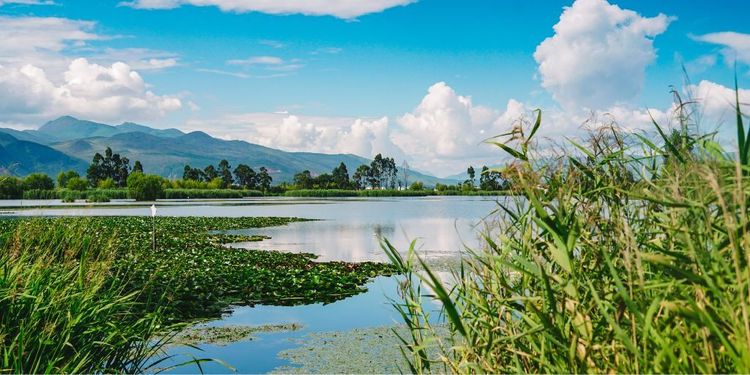Nature for Water and Sanitation
What Are Nature-Based Solutions (NbS)?
The International Union for Conservation of Nature (IUCN) defines Nature-Based Solutions (NbS) as “actions to protect, sustainably manage and restore natural or modified ecosystems, which address societal challenges (e.g. climate change, food and water security, or natural disasters) effectively and adaptively, while simultaneously providing human well-being and biodiversity benefits.”
Investing in NbS is increasingly recognised as a powerful way to tackle local water challenges—urban or rural. From mitigating floods and improving water quality to restoring degraded ecosystems, NbS offer sustainable, cost-effective solutions that deliver multiple benefits for people and nature alike.
Examples include:
- Watershed restoration through reforestation or soil conservation;
- Protection of riparian zones to reduce erosion and improve water quality;
- Wetland creation or restoration to manage urban and agricultural pollution;
- Constructed wetlands for water supply, wastewater treatment, and flow regulation.
